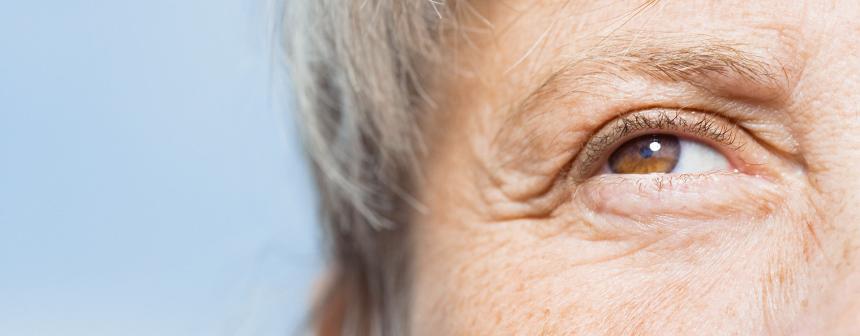Stress Causing Skin Aging & How You Can Control It

After a stressful situation or long illness, there’s a good chance you’ll notice a few more wrinkles on your face. It’s not news that stress is involved in premature aging. But stress is an unavoidable part of life. Is it possible to prevent some stress-related premature skin aging?
When you’re stressed, your body responds with the fight-or-flight syndrome – a cascade of hormonal activity that can wreak havoc your health. The havoc doesn’t just affect your internal health. Stress also takes a toll on your skin in these four common ways.
Shortens Telomeres
Each of our cells contains DNA that’s organized into twisted, double strands of molecules called chromosomes. A small compound of DNA, called a telomere, protects the ends of each chromosome. When a cell divides, the telomeres maintain the integrity of the genetic information, but shorten. After several divisions, the cell shrinks to a critical length and usually dies. Cellular death is a normal function that enables the body to replace cells that have become worn or damaged, but it can accelerate the aging process if it occurs too quickly. Stress is a leading cause of telomere shortening, ranking third only to age and genetics. Although more research is needed, scientists believe that shortened telomeres can cause a thinning of the dermis – middle layer of the skin that houses connective tissue – and a fall in the number of collagen and elastin fibers, causing skin to sag and wrinkle.
Compromises the Skin Barrier
The skin barrier is the outermost layer of the skin’s surface. Its job is protecting the skin from toxins and allergies and preventing essential water and electrolytes from evaporating. Emotional stress can interfere with the functioning of the skin barrier, according to a study published in Nature, causing dryer skin and more visible lines and wrinkles.
Increases Oxidative Stress
Free radicals are toxic byproducts produced by the body during metabolism. Eating foods high in antioxidants like fruits and vegetables can help offset some of the damage caused by free radicals. But when free radicals outnumber antioxidants, it results in oxidative stress, which can lead to a variety of health issues, as well as pigmented spots, wrinkles and skin sagging. Exposure to toxins and UV radiation, smoking, poor nutrition and excessive alcohol use all contribute to oxidative stress, as can emotional stress, according to a study published in Psychoneuroendocrinology.
Triggers Glycation
Glycation is the bonding of a sugar molecule in your blood to a protein molecule (usually collagen) forming a new molecule. Over the last few years it’s been associated with skin aging because the process slowly rearranges the structure of the skin, causing it to lose its elasticity and look older. This is why skin care experts recommend limiting your sugar intake if you want to maintain a youthful appearance. But stress contributes to the glycation. When you’re stressed, your body requires extra energy to get you through the stressful situation, so it releases the hormone cortisol. Cortisol inhibits insulin and releases sugar and fat from storage sites throughout the body into your blood for use as energy. The released sugar molecules are vulnerable to glycation.
What Can You Do to Control Stress-Related Skin Aging?
There are some steps you can take to control stress and the effects it has on your skin. Here are a few suggestions from the American Academy of Dermatology Association.
- Manage your stress. Common stress busters include engaging in a hobby, mediating or watching funny movies. Exercise also eases your stress, improves circulation and helps you look younger. Just get clearance from your doctor before beginning or changing an exercise routine.
- Eat a skin-friendly diet. Limit your sugar and eat foods high in antioxidants such as fruits and vegetables.
- Avoid vices. Smoking affects the appearance of your skin and speeds the skin aging process. And alcohol can dehydrate you, causing fine lines and wrinkles to be more visible.
- Limit your exposure to UV rays. While out in the sun, wear a broad-spectrum sunblock with an SPF 30 or higher. Hats, sunglasses and sun protective clothing also help.
- Work with your primary care physician. They can help you create a plan to help you control stress.
If you don’t have a primary care physician, consider partnering with an MDVIP-affiliated physician. They have time to really work with you and develop a wellness plan that can help you control stress and anxiety. Find a physician near you and begin your partnership in health »


